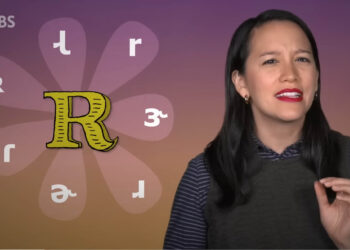A recent Twitter (sorry, “X”) conversation about the word “preprint” got me thinking about the evolution of language and the video below. Just as the meaning of words change (when was the last time you “hung up” or “dialed” a phone?), so too does pronunciation. As Erica Brozovsky of Otherwords notes, the only difference between a correct pronunciation and a mispronunciation of a word is often time. The video below is full of all sorts of different reasons why words are mispronounced (“hypercorrection” leading to silicon being pronounced differently than bacon or falcon, and where that “r” at the end of “idea” comes from in certain regions). I realized that I mispronounce “coup de grace” without the “s” sound at the end, and that I’m at the cutting edge of those changing the pronunciation of “dour” to rhyme with “sour”. See if you can spot any of your own habits below.
Discussion
3 Thoughts on "The Evolution of Pronunciation"
Pronunciation is not just a matter of time but also geography, as you barely touch on in mentioning regions. You’ve also just stepped into the dichotomy between prescriptivism and descriptivism, and will find that all serious scholarly linguists will reject prescriptivism.
A very useful resource for American English is the Dictionary of American Regional English, DARE: https://www.daredictionary.com/
I finally want to pre-empt any discussion about dialects and implications that one form of English is more correct than another. If a community of native speakers generally agrees on any aspect of the language, that aspect, be it pronunciation, verb inflection, pronoun usage, or anything else, is legitimate in that community, and in the end, every such human community of speakers is as legitimate as any other.
It’s only in the context of non-native speakers, eg ESL learners, that it is appropriate to speak of error.
In nephrology there is the word “glomerular”, as in glomerular disease. Being from New Jersey, where were have an erratic relationship with the letter R, I have great difficulty pronouncing glomerular correctly. I’ve given up trying. The word is pronounced “glo-meah-u-lah”. It’s just the way it’s gotta be.
Fascinating and delightful! thanks for a great lunchtime break.



